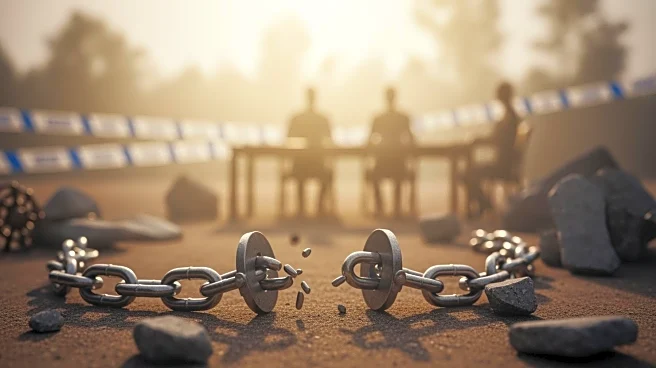What's Happening?
Hamas has announced that the return of Israeli hostages' bodies may be delayed due to some being buried under rubble in Gaza. The group claims that hostages are trapped in destroyed tunnels and bombed
buildings, complicating efforts to retrieve them. This situation arises amidst ongoing tensions in the region, where the Lebanese model of governance, featuring a weak government alongside a dominant guerrilla force, is becoming more prevalent in Gaza. The destruction in the area has made recovery efforts challenging, raising concerns about the humanitarian impact and the future of governance in the region.
Why It's Important?
The announcement by Hamas highlights the severe humanitarian challenges facing Gaza, where infrastructure damage from conflict has impeded recovery efforts. The delay in returning hostages' bodies could exacerbate tensions between Israel and Hamas, potentially affecting peace negotiations and regional stability. The situation also underscores the difficulties in establishing effective governance in Gaza, where the presence of a dominant guerrilla force complicates efforts to rebuild and maintain order. This development is significant for international stakeholders, as it impacts diplomatic relations and humanitarian aid efforts in the region.
Beyond the Headlines
The situation in Gaza raises ethical and legal questions about the treatment of hostages and the responsibilities of governing bodies in conflict zones. The challenges in recovering hostages' bodies highlight the broader issue of accountability and the need for effective governance to ensure the safety and rights of individuals in war-torn areas. The evolving governance model in Gaza, resembling the Lebanese model, could have long-term implications for regional politics and the balance of power in the Middle East.











